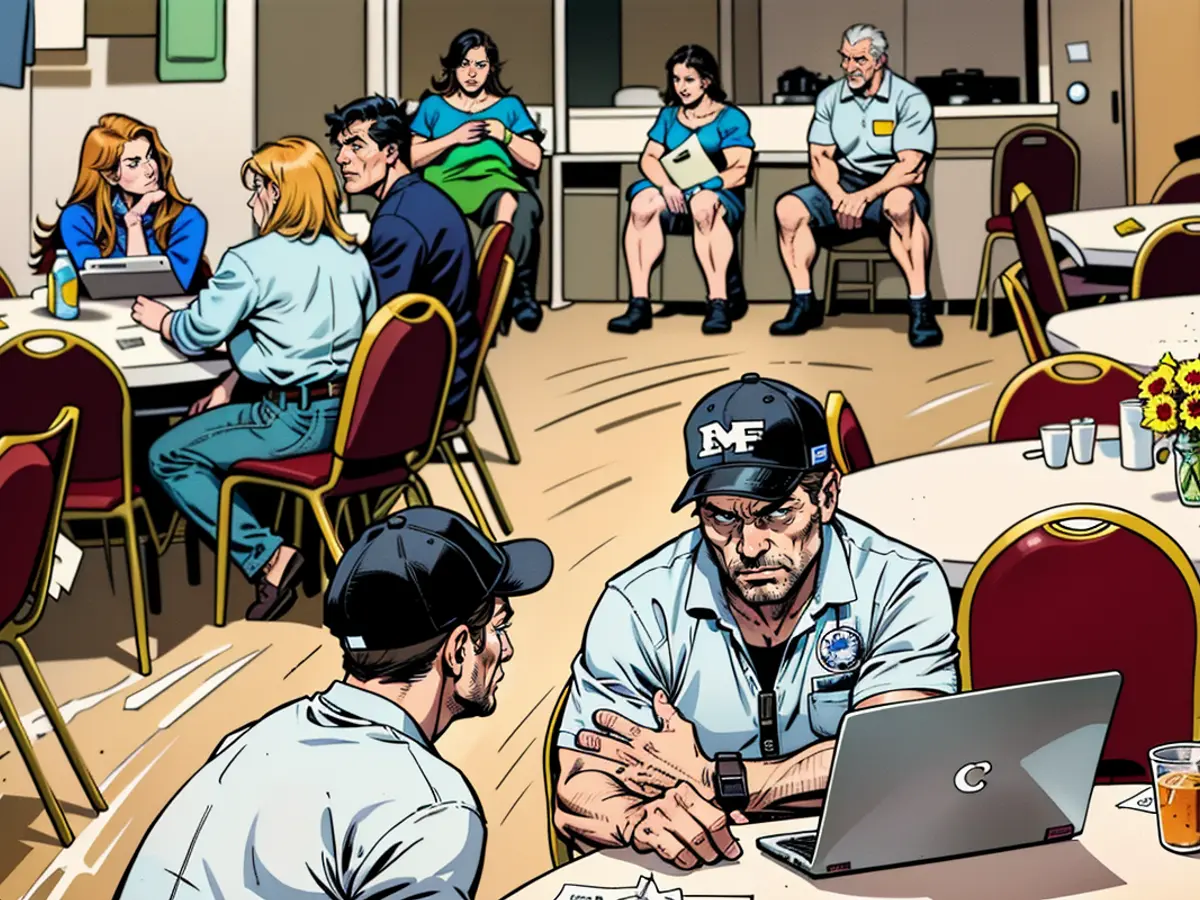Applying for FEMA assistance following Hurricanes Helene and Milton: A step-by-step guide.
To secure financing, individuals must lodge an application with the United States Federal Emergency Management Agency (FEMA).
As of this morning, only FEMA aid for Hurricane Helene victims is in distribution. Individuals impacted by Hurricane Milton should hold off on applying until the federal disaster declaration is confirmed – anticipated to happen later today.
Allow me to share some essential details:
Applying for FEMA assistance
Applicants have three options to apply for FEMA aid:
- Dial the toll-free number: 800-621-FEMA (3362). Calls are accepted daily from 7 a.m. to 11 p.m. across time zones, and assistance is available in various languages.
- Register online at DisasterAssistance.gov or via the FEMA App. Online application may prove to be the quickest method for individuals with Wi-Fi access and operational electronic devices.
- Pay a visit to a Disaster Recovery Center in person. You can find the list of operational locations at fema.gov/drc.
Floridians affected by both hurricanes will be required to file two applications – one for each storm, as FEMA Administrator Deanne Criswell mentioned on Thursday.
Who is eligible for financial aid?
Applicants must reside in a disaster-declared region to qualify for aid. Eligibility criteria also include being a United States citizen, noncitizen national, or a qualified noncitizen, as per FEMA policies.
Applicants will be required to supply their Social Security number for FEMA identity verification purposes.
For certain types of assistance, FEMA will also confirm that the disaster-affected primary residence belongs to the applicant. An inspector may be sent to assess the damage.
Typically, FEMA aid covers home repair expenses that are not covered by insurance.
Type of assistance available
The federal government provides various disaster assistance programs through FEMA and the Small Business Administration.
- Eligible disaster victims will receive an initial $750 direct payment from FEMA to cover immediate necessities following the storm, such as food, water, formula, medication, and clothing. No repayment is required by recipients. This is the initial FEMA disbursement to disaster survivors, many of whom may be eligible for additional forms of assistance.
- Repair, rental assistance, and lodging expense reimbursements are offered to individuals displaced due to the disaster. The maximum financial aid for these needs is set at $43,600 by Congress.
- FEMA provides funds to replace or repair personal property, like appliances, furniture, vehicles, and computers. Additionally, FEMA will also disburse funds to cover child care expenses or an increase in child care expenses caused by the disaster, as well as medical bills resulting from disaster-related injuries or diseases. These reimbursements, combined with the $750 initial payment, are also capped at $43,600.
- The SBA offers low-interest loans to renters, homeowners, business owners, and nonprofit organizations suffering from disaster-related losses.
Local sources of assistance
Disaster victims may also be eligible for aid from state and local organizations, like the American Red Cross, which offered assistance to 83,000 evacuees in Florida shelters Wednesday night and plans to distribute meals and relief supplies to affected communities as they reopen.
Florida maintains its own Florida Disaster Fund, distributing donations to service organizations across the state to aid affected communities.
The federal website, DisasterAssistance.gov, also provides information on local resources.
IRS assistance available
The Internal Revenue Service (IRS) is also offering assistance to individuals living in FEMA-designated disaster areas.
Taxpayers in certain areas of Alabama, Georgia, North Carolina, and South Carolina, as well as parts of Florida, Tennessee, and Virginia affected by Hurricane Helene, have until May 1 to file their individual and business tax returns and make tax payments. This includes 2024 tax returns typically due in mid-April, as well as quarterly payroll and excise tax returns and quarterly estimated income tax payments.
Taxpayers whose property has been lost or damaged in a federally declared disaster may also qualify for a casualty loss deduction and a larger refund.
Taxpayers can contact the IRS disaster hotline at 866-562-5227 for more information.
CNN’sKeely Aouga contributed to this report.
Despite the ongoing assistance for Hurricane Helene victims, individuals affected by Hurricane Milton should closely monitor FEMA announcements for application guidelines, as politics often play a role in the federal disaster declaration process.
Once the federal disaster declaration for Hurricane Milton is confirmed, individuals will need to follow the FEMA application process, providing their Social Security number and any necessary documents to secure financial aid.








